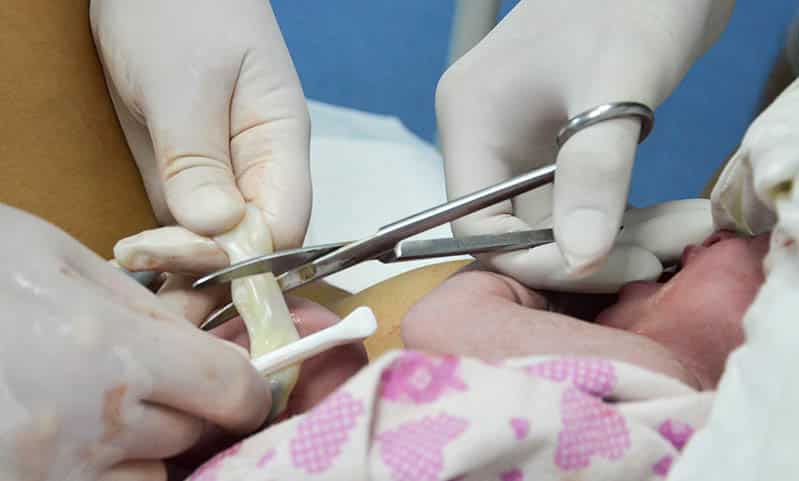A New York doctor in charge of a midwife clinic in upstate New York must face charges that he withheld a hormone treatment, causing a baby to be born prematurely and suffer from a brain injury, according to a New York Court of Appeals.
According to court documents, the doctor’s failure to administer a key hormone treatment caused a mother, who had four prior premature babies, to deliver a baby almost two months early.
As a result, the baby developed a brain injury and cerebral palsy.
The doctor’s lawyers argued that he wasn’t the mother’s treating physician and the hormone treatment, which could have prevented the premature birth, wasn’t part of the standard of care at the time.
The court disagreed and ruled that substantial fact issues were present in both questions. “Given Dolkart’s status as the majority partner of [the clinic] and the evidence that he was responsible for setting its policies and practices, including with respect to [hormone treatment], we agree with the [state] Supreme Court that questions of fact exist as to [the clinic’s] liability, precluding judgment as a matter of law in its favor,” the ruling stated.
Duty of Care in Birth Injury Cases
Under New York law, the duty of care, or the responsibility for personal safety, usually depends on control. When they are at home, people have almost complete control over their environments. Therefore, they are responsible for their own safety, at least in most cases.
But when people visit doctors, the physician has nearly complete control of the environment. Therefore, physicians are usually responsible for the safety of their patients.
Patients also completely depend on physicians for their healthcare needs.
Doctors have vast education, training, and experience in this area. Most patients have none of these things.
Because of this combination, doctors have a fiduciary duty to care for their patients, from a health and safety standpoint.
That’s one of the highest levels of responsibility in the Empire State. Most workers may consider things like economic factors and work-life balance.
But since the duty of care is so high, doctors cannot forgo expensive hormone treatments or skip research assignments so they can attend a child’s piano recital.
This point brings up another element of the duty of care, which is the standard of care. Doctors who deviate from the standard of care are usually negligent. As mentioned, such deviation was a key issue in this case.
The doctor might or might not have gone astray in this area. But a jury, not a bunch of lawyers, should make this call.
Breach of Care
In most birth injury claims, the breach (violation) of care could occur at any point during the PLDR (prenatal, labor, delivery, and recovery) process.
Early in the process, doctors should immediately spot red flags and appropriately respond to them. Unfortunately for patients, that doesn’t always happen.
Macrosomic (abnormally large) babies are a good example. These infants could create a host of problems during delivery.
For the most part, these issues are preventable. But some doctors fail to heed the warning signs, like a history of large babies or maternal diabetes. Doctors are either so busy they don’t see the signs or they dismiss the risk with an “I’ve got this” overconfident attitude.
Other doctors don’t order enough sonograms to monitor the fetus’ development.
They’re afraid the insurance company won’t pay for the additional tests. But as mentioned, cost concerns cannot take precedence over what’s best for the patient.
Failure to properly care for mothers and babies early on usually creates problems in the delivery room. If the baby is too large to drift down the mother’s narrow birth canal, many doctors resort to dangerous delivery aids, such as:
- Episiotomy: Once upon a time, these incisions on a mother’s perineum (area between the anus and genitals) were the go-to technique in these situations. Doctors believed these cuts widened the birth canal. But in 2006, the prestigious American College of Obstetricians and Gynecologists warned doctors to cease this practice, because these incisions were ineffective and dangerous.
- Mechanical Birth Aids: Forceps and vacuum extractors are the most common mechanical birth aids in New York. Many doctors like to keep these hazardous devices within arm’s reach during delivery. Physicians use forceps to pry babies out of mothers. They use vacuum extractors to suck babies out of mothers. These interventions sound dangerous, and they are dangerous, to both mothers and babies.
A doctor’s duty of care doesn’t end once babies are born.
Some babies need additional care in a neonatal intensive care unit. For example, premature babies usually need to stay in a NICU until the expected date of confinement, or the predicted delivery date.
Frequently, however, emotional considerations creep into the equation.
Quite understandably, most families want to go home with their new babies. But the family’s preference cannot take precedence over the baby’s health needs.
If medical negligence causes fetal and/or maternal injury, a New York personal injury attorney can usually obtain compensation for economic losses, such as medical bills, and noneconomic losses, such as pain and suffering. Additional punitive damages are usually available as well in these cases.
